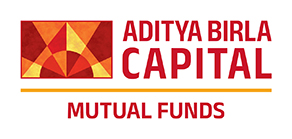Financial Planning for the Retirees

You are at a stage in your life when good times are ahead of you. Your retirement days are here when you will sit back and relax. Financially, you are comfortably placed as you have pursued your retirement planning in advance. You have a hefty corpus which fulfills your expenses and other needs. However, the downside to having a corpus, even a hefty one is that it is fixed. Life does not come with a guarantee card and if you outlive your life expectancy you will still have to continue with your lifestyle. The average life expectancy of individuals living in urban areas is 15 years or above the age of 60 years i.e the average life span of an urban citizen is 75 years or above. However, with improved health facilities and better lifestyle the expectancy could rise to 80 years plus in the near future.
The existence of a fixed hefty corpus is comforting but in no way marks the end of for investments. Investing is a lifelong process and has to be carried out to generate regular income and beat inflation. Post retirement, like any other phase in life is full of uncertainties and it is best to be prepared financially. Health becomes uncertain and contingencies have to be made to meet the rising cost of healthcare. Hence, there is no phrase such as ‘enough investment’ even post retirement. Let us take a look how you can make your retirement financially fruitful.
Focus on the growth of the Assets
The tendency among retirees is to create a regular income from the corpus without making any provisions for its replenishment. This will slowly deplete your corpus and is far from the ideal approach. A part of the corpus must be put in to growth options like equities or equity oriented Mutual Funds. The amount that you are sure will not be needed for at least five to six years can be utilized for further investment to earn inflation adjusted returns. You need to watch out before investing in fixed income instruments as they may be liable for taxation during the time of maturity and withdrawal. A lot of fixed income instruments are stringent about lock in periods making liquidity of these investments an issue. Hence, equity remains a viable option even in your retirement.
Equities are usually written off as risky for post retirement investments. However, as an asset class it has various products with varying degree of risks. Large Cap Oriented Equity Mutual Funds maybe a good option to explore as they carry moderate risk and provide inflation adjusted returns. The fundamental rule one must remember while making investments post retirement is to never put the entire fund in one product basket. Put around 20%-30% in equities and the rest could be parked in a liquid fund or Debt Funds. This will ensure that even if there is some major upheaval in the market your investments remain in a good place.
Emergency Funds for any exigencies
As the name already suggests it is a fund exclusively for emergencies. It is advisable to have at least a year’s expense in your emergency fund. If you or your spouse have any serious medical condition and do not have adequate medical cover then you might want to have a hefty emergency account. The key to having an emergency fund is liquidity. Hence, investments in liquid funds can be a good option as they generate inflation adjusted returns and investors can stay invested for a year or less. There is no exit charge for redeeming the investment before a year. Your investments do not have to lie stagnant and can keep accumulating returns and short and long term capital gains. Investments in Liquid funds make more sense as the redemptions are paid out on Transaction + 1 day basis.
Mutual Fund Monthly Income Plans as an Option
It is a product that is prone to mis-selling because the name suggests it to be an investment instrument producing regular income with low risk. However, that is just a myth. MIPs are debt oriented mutual funds where 75%-85% investments are debt oriented and the remaining in equities. The income that is generated from the MIPs is not limited to monthly payout; investors can choose options such as quarterly, half yearly and annually. The dividends from MIPs at the hands of the investor are tax free as they are received after a deduction of Dividend Distribution Tax.
The short term capital gains are taxable as per your income tax slab. The long term capital gains will be taxed at 10% without indexation and 20% with indexation. It is suitable for retirees who are looking to generate regular income along with moderate returns.
Dividend Versus Growth Options
This is one of the toughest calls to make. Should the dividends be reinvested? Should the dividends be redeemed to generate income? One of the parameters that you can use to analyse such a situation is by asking ‘How badly do I need the money’. Do you immediately need the income regularly or your current financial state is enough to meet your monthly expenditures? In case it is not an emergency and you do not desperately need the funds then let your investments simmer in growth option. This will allow your investments to gain time value of money. Returns are generated via compounding.
Hence, the corpus in three to five years can be a substantial one just by not taking the dividends. However, if you need the funds you can also opt for Systematic Withdrawal Plan (SWP) which is the opposite of SIP to draw a certain amount from your investments every month and maintain a steady cash flow.
Creating a Will and Inheritance Money
Nobody likes to discuss the morbid topic of death. However, planning for it is inevitable. If you still have not prepared your will then it is high time you start thinking about it. A will is to make sure that all your assets are distributed legally as per your wishes. Through the will it is important to protect your spouse and his/her rights on your assets and funds after your demise. Select an executor for the will who is usually a neutral entity and will oversee the distribution of your assets to its rightful owners.
Apart from assets if you are willing to leave behind inheritance money for your family members then start planning for it. Invest in long term options or debt of liquid funds based on the your need of your family and risk taking appetite and in a few years time you will have a bigger amount to pass on to the next generation. Declare the amount you are willing to give every individual. This will ensure that your hard earned money is not squandered after death. You have prepared for life all these years, now it is time to prepare for a life after death.
Conclusion
Financial planning and investments are a lifelong process. You may have heard the term ‘work smart’. Investing is working smart by ensuring your money keeps working hard while you are enjoying leisurely days. Have a financial planner who will oversee and manage your investments leaving you with free time. Keep investing; keep generating returns and your fixed corpus will keep growing even though your regular income has stopped. So sit back, relax, and keep investing. You may have retired from work but not from investing.
RECOMMENDED READS
Follow Birla Sun Life MF
More About ABSL MF
POST A QUERY





